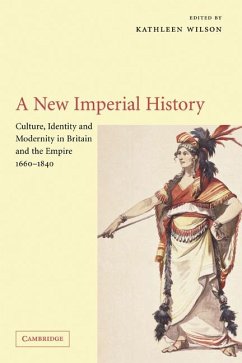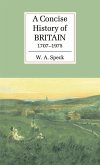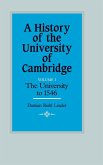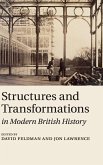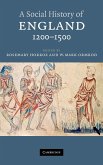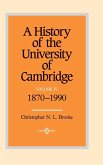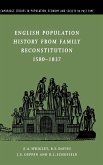Short description/annotation
Collection of essays introducing the 'new imperial history' as it developed in the eighteenth century.
Main description
This pioneering collection of essays charts an exciting new field in British studies, 'the new imperial history'. Leading scholars from history, literature and cultural studies tackle problems of identity, modernity and difference in eighteenth-century Britain and the empire. They examine, from interdisciplinary perspectives, the reciprocal influences of empire and culture, the movements of peoples, practices and ideas effected by slavery, diaspora and British dominance, and ways in which subaltern, non-western and non-elite people shaped British power and knowledge. The essays move through Britain, America, India, Africa and the South Pacific in testament to the networks of people, commodities and entangled pasts forged by Britain's imperial adventures. Based on ground-breaking research, these analyses of the imperial dimensions of British culture and identities in global contexts will challenge the notion that empire was something that happened 'out there', and they demonstrate its long-lasting implications for British identity and everyday life.
Table of contents:
List of illustrations; List of contributors; Acknowledgments; Introduction: histories, empires, modernities Kathleen Wilson; Part I. Empire at Home: Difference, Representation, Experience: 1. Women and the fiscal-imperial state in late seventeenth and early eighteenth centuries Margaret Hunt; 2. An 'entertainment of oddities': fashionable sociability and the Pacific in the 1770s Gillian Russell; 3. The theatre of empire: racial counterfeit, racial realism Felicity A. Nussbaum; 4. Asians in Britain: negotiations of identity through self-representation Michael H. Fisher; Part II. Promised Lands: Imperial Aspirations and Practice: 5. 'Rescuing the age from a charge of ignorance': gentility, knowledge, and the British exploration of Africa in the later eighteenth century Philip J. Stern; 6. Liberal government and illiberal trade: the political economy of 'responsible government' in early British India Sudipta Sen; 7. 'Green and pleasant lands': England and the Holy Land in plebeian millenarian culture, c. 1790-1820 Eitan Bar-Yosef; 8. Protestant evangelicalism, British imperialism and Crusonian identity Hans Turley; Part III. Time, Identity, and Atlantic Interculture: 9. Time and revolution in African America: temporality and the history of Atlantic slavery Walter Johnson; 10. The Green Atlantic: radical reciprocities between Ireland and America in the long eighteenth century Kevin Whelan; 11. Brave Wolfe: the making of a hero Nicholas Rogers; 12. Ethnicity in the British Atlantic world, 1688-1830 Colin Kidd; Part IV. Englishness, Gender, and the Arts of Discovery: 13. Writing home and crossing cultures: George Bogle in Bengal and Tibet, 1770-1775 Kate Teltscher; 14. Decoding the nameless: gender, subjectivity, and historical methodologies in reading the archives of colonial India Durba Ghosh; 15. Ornament and use: Mai and Cook in London Harriet Guest; Thinking back: gender misrecognition and Polynesian subversions aboard the Cook voyages Kathleen Wilson; Further reading; Index.
Hinweis: Dieser Artikel kann nur an eine deutsche Lieferadresse ausgeliefert werden.
Collection of essays introducing the 'new imperial history' as it developed in the eighteenth century.
Main description
This pioneering collection of essays charts an exciting new field in British studies, 'the new imperial history'. Leading scholars from history, literature and cultural studies tackle problems of identity, modernity and difference in eighteenth-century Britain and the empire. They examine, from interdisciplinary perspectives, the reciprocal influences of empire and culture, the movements of peoples, practices and ideas effected by slavery, diaspora and British dominance, and ways in which subaltern, non-western and non-elite people shaped British power and knowledge. The essays move through Britain, America, India, Africa and the South Pacific in testament to the networks of people, commodities and entangled pasts forged by Britain's imperial adventures. Based on ground-breaking research, these analyses of the imperial dimensions of British culture and identities in global contexts will challenge the notion that empire was something that happened 'out there', and they demonstrate its long-lasting implications for British identity and everyday life.
Table of contents:
List of illustrations; List of contributors; Acknowledgments; Introduction: histories, empires, modernities Kathleen Wilson; Part I. Empire at Home: Difference, Representation, Experience: 1. Women and the fiscal-imperial state in late seventeenth and early eighteenth centuries Margaret Hunt; 2. An 'entertainment of oddities': fashionable sociability and the Pacific in the 1770s Gillian Russell; 3. The theatre of empire: racial counterfeit, racial realism Felicity A. Nussbaum; 4. Asians in Britain: negotiations of identity through self-representation Michael H. Fisher; Part II. Promised Lands: Imperial Aspirations and Practice: 5. 'Rescuing the age from a charge of ignorance': gentility, knowledge, and the British exploration of Africa in the later eighteenth century Philip J. Stern; 6. Liberal government and illiberal trade: the political economy of 'responsible government' in early British India Sudipta Sen; 7. 'Green and pleasant lands': England and the Holy Land in plebeian millenarian culture, c. 1790-1820 Eitan Bar-Yosef; 8. Protestant evangelicalism, British imperialism and Crusonian identity Hans Turley; Part III. Time, Identity, and Atlantic Interculture: 9. Time and revolution in African America: temporality and the history of Atlantic slavery Walter Johnson; 10. The Green Atlantic: radical reciprocities between Ireland and America in the long eighteenth century Kevin Whelan; 11. Brave Wolfe: the making of a hero Nicholas Rogers; 12. Ethnicity in the British Atlantic world, 1688-1830 Colin Kidd; Part IV. Englishness, Gender, and the Arts of Discovery: 13. Writing home and crossing cultures: George Bogle in Bengal and Tibet, 1770-1775 Kate Teltscher; 14. Decoding the nameless: gender, subjectivity, and historical methodologies in reading the archives of colonial India Durba Ghosh; 15. Ornament and use: Mai and Cook in London Harriet Guest; Thinking back: gender misrecognition and Polynesian subversions aboard the Cook voyages Kathleen Wilson; Further reading; Index.
Hinweis: Dieser Artikel kann nur an eine deutsche Lieferadresse ausgeliefert werden.

